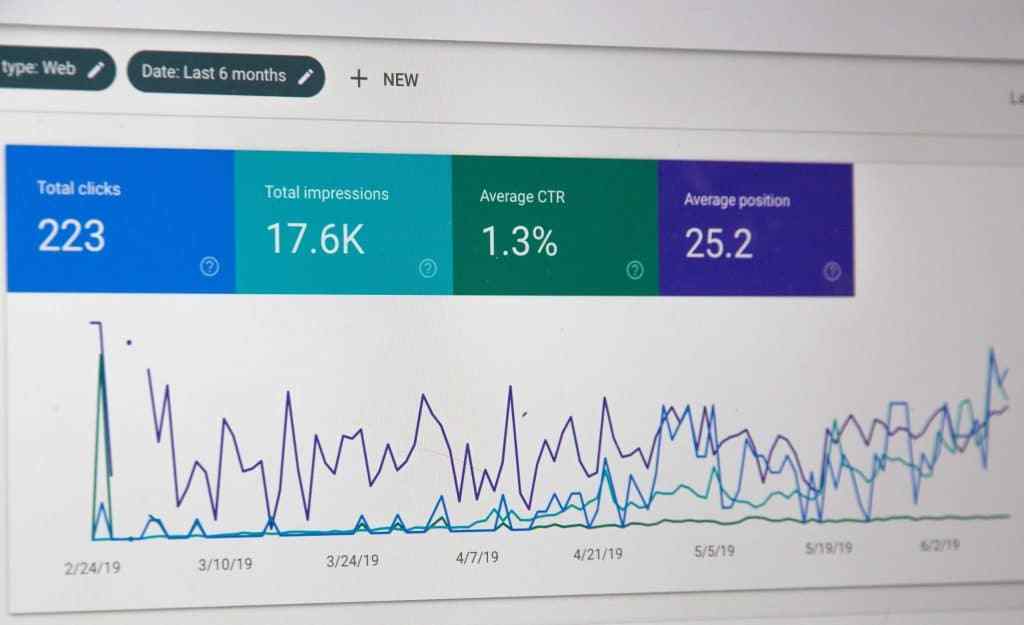8 Steps How to Become an SEO Expert Specialist

Becoming an SEO expert is a journey that can significantly enhance your website’s traffic and sales. Today we will discuss the essential steps and strategies to help you become a professional SEO specialist.
To embark on your journey to SEO expertise, it’s crucial to grasp the fundamental concepts behind SEO – search engine optimization.
Understand the Basics of SEO
SEO revolves around how search engines, with Google being the prime player, function. A key aspect is comprehending the significance of keywords and their role in search engine rankings.
Google operates as an information provider, much like a vast virtual library. When users search for specific keywords, Google’s primary objective is to present the most relevant and valuable information, effectively making it akin to a librarian guiding visitors through its digital shelves.
Just as a library categorizes its contents into different departments such as entrepreneurship, nature, university studies, and more, Google categorizes web pages based on their content. The goal of any website or blog is to secure a prominent position in Google’s search results for specific keywords, ensuring a steady stream of organic traffic.
For a better understanding, think of Google as a vast online library where the visitors are internet users conducting searches. The keywords they input are akin to the subject they seek, and the search results are like the library’s indexed shelves.
Your website or blog is equivalent to a book in this library, and achieving a high ranking in Google’s search results is akin to being placed on the gondola head in a physical store, where the most prominent and enticing products are displayed.
As an aspiring SEO expert, your role is to ensure that your web pages reach that coveted first position and attract the most traffic.
How to Becoming an SEO Expert
To earn the title of an SEO specialist and excel in website rankings, follow these straightforward steps to become an SEO expert.
1. Target Relevant Keywords
Select keywords that are directly related to your content and have substantial search volume with minimal competition. This approach increases your chances of securing a prominent position in search results.
2. Understand Dofollow and Nofollow Links
Distinguish between dofollow and nofollow links. While dofollow links positively influence SEO, nofollow links have no impact. Ensure your content incorporates do-follow links strategically.
3. Optimize URL Structure
In platforms like WordPress, configure your permalinks to create user-friendly URLs that include relevant keywords. Shorten your URLs while retaining the essential keywords for optimal SEO.
4. Prioritize Unique Content
Maintain the integrity of your content by avoiding duplication. Google penalizes duplicate content, so ensure each article is unique and adds value to your audience.
5. Keyword Optimization
Incorporate your target keyword naturally throughout your content without over-optimization. This enhances your content’s relevance in the eyes of search engines.
6. Utilize H1 and H2 Tags
Employ H1 and H2 tags strategically in your content. The H1 tag should encompass your main topic, while the H2 tags can be used for subheadings, providing a clear structure to your content.
7. Implement Internal Linking
Strengthen your website’s structure by including internal links. This practice guides visitors to related content on your site, enhancing user experience and SEO.
8. External Links
Optimize your content by including relevant external links to reputable websites. These external references enhance your content’s credibility and value to readers.
Key Points to Grasp About SEO
Now that you have a clearer picture of how Google and SEO operate, let’s delve into the key principles that every beginner should understand to optimize a website or blog effectively.
1. Age and Relevance
Google operates by specific rules and guidelines, known as SEO. To attain high rankings, it’s crucial to adhere to these rules. Google considers the age of your domain name and the relevance of your content. Relevance is assessed by factors like Page Rank (PR), a metric that measures a website’s popularity and authority in its niche.
2. Regular Content Updates
Consistency is vital in the world of SEO. Regularly updating your website with high-quality content is essential to maintain a strong online presence. Avoid prolonged periods of inactivity, as this can negatively impact your rankings.
Tools That Can Help You Mastering SEO

In the fast-paced world of online marketing, being an SEO expert is not just an option; it’s a necessity. As an SEO specialist, your success hinges on your ability to effectively manage, optimize, and analyze your website’s performance on search engines.
This article serves as your comprehensive guide to mastering SEO, and we’ll introduce you to a set of indispensable SEO tools and strategies that will propel you ahead of your competition.
The Power of SEO Analysis
To become a true SEO expert, you must have the tools and knowledge to analyze your website’s performance. This includes monitoring your website’s positions on Google, identifying weaknesses, and implementing strategies to outshine your competitors.
Leveraging the Right Tools
SEO analysis and optimization require the right set of tools. Here, we present you with a list of SEO tools that will equip you with the prowess of a seasoned SEO specialist. These tools are essential for in-depth analysis, and they are sure to enhance your SEO journey.
1) Google Ads
Google Ads is a top-tier platform that allows you to create and manage paid advertising campaigns. As an SEO specialist, you can utilize Google Ads to increase the visibility of your website by targeting specific keywords and demographics.
This paid advertising approach complements your organic SEO efforts and can help you reach a broader audience.
Google Ads enables you to research and choose the most effective keywords for your advertising campaigns. Utilize this tool to discover the keywords that resonate with your target audience and drive more traffic to your website.
2) Google Analytics
Google Analytics is your ultimate companion for data analysis. This robust tool provides you with detailed insights into your website’s performance, user behavior, and conversion rates.
As an SEO specialist, you can harness the power of Google Analytics to make data-driven decisions that will enhance your website’s visibility.
Google Analytics allows you to set up conversion tracking, enabling you to measure the effectiveness of your SEO strategies. This information empowers you to make informed decisions and refine your approach for better results.
3) SEMrush
SEMrush is an all-in-one SEO suite that offers a plethora of features for comprehensive website analysis. From keyword research to competitor analysis, SEMrush provides valuable insights to optimize your SEO efforts.
Unearth valuable keywords using SEMrush’s keyword research tool. Identify low-competition keywords that can give your website an edge in the search engine rankings.
4) Google Console
Google Console is an invaluable tool provided by Google for webmasters and SEO specialists. It helps you understand how Google views and indexes your website. This insight is essential for making improvements that can boost your search engine rankings.
Google Console allows you to submit your sitemap, ensuring that Google indexes all the important pages of your website. This ensures that your content is discoverable and accessible to users.
5) SERP Surf
SERP Surf is a cutting-edge tool that lets you analyze search engine result pages (SERPs). It offers valuable insights into keyword rankings, featured snippets, and more, allowing you to fine-tune your SEO strategies.
Use SERP Surf to identify opportunities to rank in featured snippets. These coveted positions can significantly increase your website’s visibility and credibility.
6) Ahrefs
Ahrefs is a powerhouse for backlink analysis and competitor research. SEO specialists can use Ahrefs to uncover backlink opportunities, monitor their own backlink profile, and gain a competitive advantage.
Ahrefs provides a detailed analysis of your website’s backlinks. Use this information to identify and acquire high-quality backlinks that boost your website’s authority.
7) SERPMojo
SERPMojo is a dedicated rank-tracking tool that keeps you informed about your keyword positions on search engines. This tool is indispensable for tracking your SEO progress and making real-time adjustments.
SERPMojo offers real-time keyword ranking updates. With this information, you can promptly respond to changes in your website’s search engine positions.
Conclusion
Remember that SEO is a long-term endeavor that requires patience. By consistently implementing these practices and staying updated with the latest SEO trends, you can become a proficient SEO expert and boost your website’s visibility and success.
Becoming an SEO expert requires a combination of knowledge, strategy, and the right tools. With Google Ads, Google Analytics, SEMrush, Google Console, SERP Surf, Ahrefs, and SERPMojo in your arsenal, you’re well-equipped to dominate the SEO landscape.
Also Read: Visual Search Statistics Latest Insights and Trends
Follow Top and Trending on Google News and receive the latest alerts and the main news about apps, technology, beauty, entertainment, and all the top 10 related posts.
